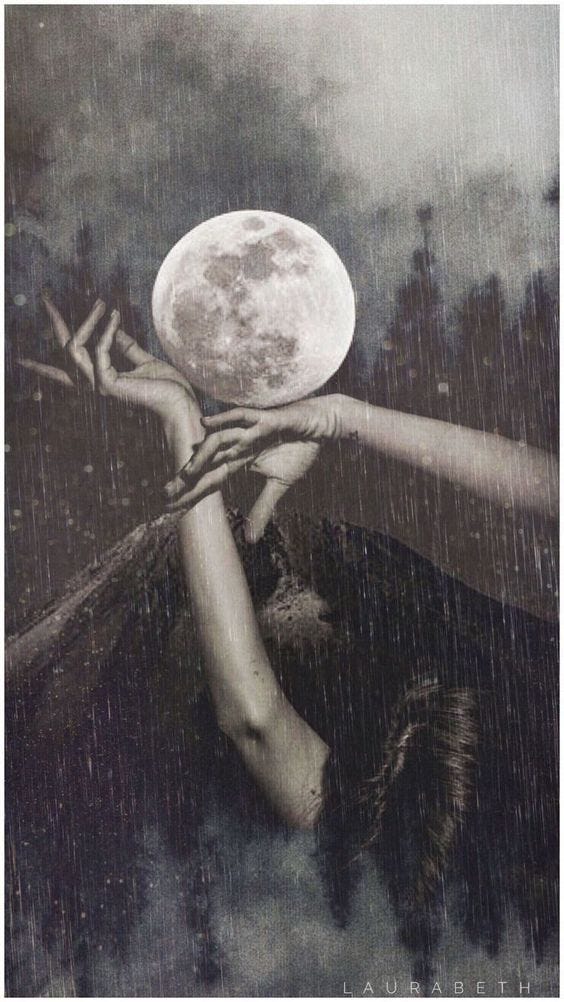Offering #16: How to Write a Personal Essay
and other alchemical tricks. xx.
Hello all. I post here each new 🌑 and full moon 🌕. Happy August New Moon in Leo! 🌑 Read below for the offering.
I’ve spent much of my summer reading personal essays—— both student drafts as I teach summer workshops at Sackett Street Writers, for WritingWorkshops.com and privately— and gorgeous published work from the likes of Leslie Jamison and Melissa Febos. Meanwhile, I feel like every other day I hear either poetry is dead or personal essays are—- neither have kicked the bucket and won’t. ✨We need personal stories, and we want to write them.✨
I was inspired by a recent post from colleague in meditation-and-writing
where he wrote about the Art of the Personal Essay and I thought I’d throw my two cents into the conversation!Why should you listen to me?
Well, you don’t have to (and anyway, I think often of the advice I once received from a beloved yoga teacher—— hear everyone, including your teachers, but ultimately listen only to yourself). But if you want to hear me, just know I’m obsessed with personal essays—- and sharing them when they feel ready. So far I’ve had 4 in the NYTimes, 3 in the LATimes, Poets + Writers mag, Slice, Vol 1 Brooklyn, Yoga Journal, Tin House back in the day, a recent one in Pigeon Pages (yay that one got a Pushcart nom!), etc. etc, and my students have published personal essays in the NYTimes Modern Love column, LATimes, Yoga Journal, slews of lit journals, etc. We’re out here mining our lives for material, pursuing the alchemy of change that happens when we tell our truths.
Here are some how-to steps, and things to think about when it comes to the essay——I’d love to hear what you have to add:
Locate a Haunting: what’s something that haunts you, sticks with you, despite the fact that years have gone by, you’ve talked with a therapist about The Thing, etc? If there’s a time in your life that you ruminate on or feel a strong emotional charge around, that could be a sign there’s material there. (the first piece I shared in the NYTimes was about a really hard and weird time that haunted me—-but writing about it helped me digest it all, see some beauty in it, and move past it) Consider making a list of all the memories that haunt you. Another way to think of this is: locate the emotional charge! What are some times you felt BIG peak feelings? (grief, shame, embarrassment, even elation?) Sometimes the worst feelings to live through give way to the best material. Strong emotions can mean strong writing. Make a brainstorm list of emotionally charged memories to see what’s there.
Consider Change/ i.e. Change is the Only Poem: poet Adrienne Rich famously said “change is the only poem” and I think of this often—-if brainstorming a list of “hauntings” doesn’t work for you, consider moments of big change in your life. (note— “big change” can be external—-like the time you moved across country—-or internal—-the time you forgave your father.) Make a brainstorm list of moments of change. See if there’s anything there you might want to explore in essay-style. (most essays pivot on change, which you’ll see below—-so this can be fruitful).
Write a Hot Mess Draft: Or shitty first draft, to use Anne Lamott’s term. Send your inner critic out for coffee (that part of us can be awesome at editing—-invite her back then..) and just write what happened. But know a personal essay is ultimately about MORE than what happened——it’s about what that happening means to you and how that can translate to the reader. Your first draft is likely for you—-to just get the story out and get some words on the page. But know that by the time you get to the final draft you will have made changes to make the story not JUST for you, but also for a reader who doesn’t know you. To do that……
Make Yourself a Character: We often forget to do this step since we’re the ones writing the essay. But don’t forget to share your age, any applicable backstory (what do we need to know about this character for this essay?—-i.e. you don’t have to share your whole life story, just the parts that will help this essay make sense). Let’s see you with some physical description. Let’s hear you with dialog. Let me know where we are in space and time (i.e. setting).
Your Character Should Go through Change: One of my fave hobbies (ha ha I’m super fun 😛) is to look at the first paragraph of an essay and then the last. There’s usually some “arc of change” in there——the character we meet at the top of the essay isn’t the same as the character in the last ‘graph—-there’s been growth, a shift in perception, or some change. ALSO——-at some point the personal narrative will often transcend the individual and become about MORE than the individual. What is the THEME your essay is ILLUSTRATING with the personal narrative? (for example, that story about traveling around the world when you were 18 might be about bravery and self-reliance. You might ILLUSTRATE the story about forgiving your father with a zoomed-in narrative looking at the last time you met up with him.) What I mean here is…
Your Personal Essay is Both about You (very specifically) and About Way More Than You: This is not a diary entry. And this is not a gloss-over. BE SPECIFIC (We love a proper noun! Give me all your hyper-specific deets!) but know the reason readers enjoy personal essays (if I can be so bold as to make a big declaration) is we want to see how other humans survive things. Even if I’VE never traveled around the world, I HAVE had to consider my own bravery and self-reliance. The transcendent theme will call to readers even if they haven’t had your exact experience. But weirdly and miraculously, the more specific you can be the more universal your story will become.
Revision is Re-visioning, a Meditation on the Topic——and Should Take as Long as You Need. You only get to submit these things once per editor usually—-so take your time. Most writers I hang out with or have been lucky enough to learn from revise a lot—-How to revise? READ a ton of personal essays to learn their inner machinery. READ your own out loud to hear where you might expand, contract or shift the piece. SHARE it with a few trusted readers or a reading group (because we all have blind spots and it can be especially hard to see personal stories). Allow yourself to try new shapes in your story. (if you’re interested in writing a personal narrative that doesn’t have the traditional “arc” or “beginning-middle-end” of it all——I recommend the craft book Meander, Spiral, Explode by Jane Alison). Personally, I know an essay is about ready to go out when: a) I feel EMOTIONAL reading it out loud and b) I have the sense that if I keep tinkering with it I’ll begin to take away from it, rather than add to it.
Essays Allow for Tracking Scene, Summary and Thought on the Page: One of my former teachers, Meghan O’Rourke, talked about how essay track the movement of the mind. I love that. Once you’re revising you can scope out where you slow down for scene (with dialog, description, etc), where you speed up with summary (cause these things aren’t book-length!) and where you explore thought. I love essays that combine narrative with THINKING THROUGH things. I love watching a mind move.
If Submitting, Look to Make a Match: If you’re eventually submitting your work for publication—- yes, send your best work but also make sure it’s a match with the publication you’re sending it to. What I mean by that is the basics——are you at the word count/ length the pub wants? Is your piece in the tone and tenor of the publication? I used to find word count concerns restrictive—-now I find them freeing. Restrictions push creativity. It’s like working in a specific poetic form—-if you have to get your word count down I promise you it will crystalize the piece. (again, patience w/ the editing—-and try to fall in love with it because through repetition / revisiting the piece the magic arises!)
What would you add to this list? Scroll down for some student personal essays I adore, and a couple of mine!
And, of course, scroll down for the New Moon offering.
xx.
I argue personal essays can do this—-clear out the old (stories) and make way for the new. It’s ALCHEMY practice to take your life and make ART out of it.
Shout-out to my teachers past, present and future in helping me learn and feel this! And to the writing itself, guru. xx.
ESSAYS TO BINGE:
Former Students:
NYTimes Modern Love: Sara Glass: Please, God, Help Me Stop Missing Her
Crab Creek Review: Kevin Hershey: All Things New
LATimes: Clare Caldera: LA Affairs
LATimes: Gia Mora: I Like Opera. He Didn’t. Should I Stick Around for the Final Act?
A Coupla Mine:
NYTimes Solver Stories: Finding A Shared Language Through Word Games
NYTimes Modern Love: A Silent Partner to Share the Path of Love
Catapult: Can You Manifest Financial Abundance?
Pigeon Pages: Co-Creators of the Universe
💐OFFERING:
Make a list of all the times, people, places and things that haunt you. Then, pick one to write about.
Look at an old photo of yourself, in another era. Write her/ his/ their story. Hold it up to your present moment self. What’s changed?
Tell me of something painful that was also beautiful. Write of the line between beauty and pain.
P.S. I always load these newsletters with images in the hope that one of THOSE might be a writing prompt, too. So maybe pick an image above—-or below—-and write to it and of it.
See you on the Full Moon. Write me back!
xx,
Sarah
images saved on my pinterest if you want sources.
UPCOMING EVENTS:
🔮 FALL EQUINOX WRITING RITUAL: SEPT 22nd, online. donation-based. write, meditate and spend time inside creative, magical, positive community. SIGN UP HERE>
🔮 IN-PERSON MINDFUL WRITING WORKSHOP: SEPT 21st, 3:30-5: 30 PM, held at Brooklyn Flow Yoga, Park Slope, BK: Meditate, breath, write in community. This is a generative event, come one, come all. SIGN UP HERE>
🔮 10-WEEK MINDFUL WRITING WORKSHOP: Starts SEPT 15th, online, Sundays noon-2:15 PM EST. Meditate, write and get feedback every-other-week. SIGN UP + INFO HERE>








